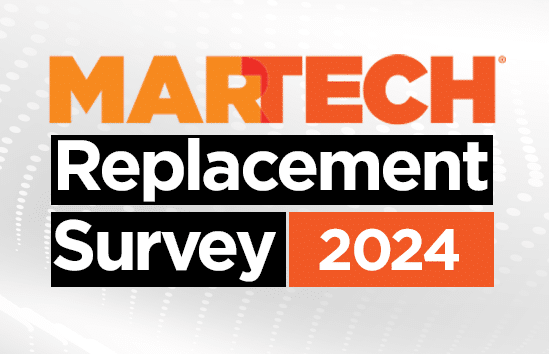
Shama Hyder is OG social media marketing. At the University of Texas, Austin, she wrote her thesis on Twitter — back when it had 2000 users. She was at SXSW’s first-ever event about interactive. At one point in the interview, Shama says social media marketing is one of the few things she’s good at. You don’t have to talk to her long to know that isn’t true. She’s the CEO of Zen Media, the B2B marketing consultancy she founded in 2008, which now has 65 employees. She’s a mother and she is, as we say here in Boston, “wicked smart.” (Interview edited for length and clarity.)
Q: Tell me about when you were starting out.
A: So it was just this kind of crazy world in the early days of social media and technology. I was like, ”This is going to change the world.” And, you know, not a lot of people agreed with me, but here we are.
I tried to get a job with the top consulting firms, and I said social media is the future. They all looked at me like I was crazy and some just outright said that. They said, “We just think this is a fad and we don’t see this changing how we do things.”
The big corporations were interested, but 2009 was the great recession and they weren’t hiring. I found that there was a hunger in small businesses, a willingness to experiment. They said, “Look, if this gets customers in the door, I’ll try it.”
And so I put out my own shingle. I knew nothing about starting a business. Absolutely nothing. All I knew was I understood marketing for this new world. I understood it in my bones. Being a digital native helped a lot. That and not having a dog in the fight like a lot of people from traditional media did at the time. My perspective was I’m fresh and I want to do whatever works. That was really helpful.
But I knew nothing about starting a company. I still remember a client asking what are your net terms? And I said, “Please hold,” and I turned to our VP, he was older and said, “What does net terms mean?” He said, “When do you want to get paid?” And I was like, net now? I’d like, what is it?
Q: What was the main problem your clients wanted to solve when you started?
A: At the start, the problem I was solving with social media for my clients was how do we get customers in the door? And that’s still what we do, just at a different scale. How do we break through the noise? How do we get people to know we exist? The real marketing is, do people know who you are? Do they know what you do? Do they choose you or your competitors?
Q: What do you like about social media marketing?
A: I’m good at it. I’m good at very few things, Constantine. This is just one on a very short list.
Q: I don’t believe you, but okay.
A: I have an aptitude for it, and I’ve put in a lot of discipline into becoming very good at it.
And the other part of it is for me, work has always been sacred. I was raised in immigrant households and that’s what I was taught. One of the things that greatly bothers me about today’s culture is that punching down on work is cool. Or we make fun of it. We are comfortable making fun of what puts food on the table.
That really raises my hackles because it’s not how I was raised. My husband’s an entrepreneur, I’m an entrepreneur, and we both just have so much respect for what puts food on the table and what pays for soccer lessons and allows people to have economic stability and have a company that can hire people so that they can have it, too. At the end of the day, what motivates me is being able to provide more opportunities for people.
Q: How has social media changed since when you started?
A: One of the big shifts is that we’ve gone from very public in social to very private. What that means is on Facebook, for example, when you posted a picture, everyone liked it and commented. Now, so many of those things happen in back channels. This is the rise of “dark social” — which was coined in 2012 by journalist Alexis Madrigal in The Atlantic. I think it was a little ahead of its time. You see now that people consume publicly, but we share privately. The number one app for anybody is a messaging app.
From a marketing perspective, the issue is understanding that consumption is engagement. How many people read your work and then leave comments? None. Totally. But how many people read your work? And how many people maybe share that with their teams in a Zoom conversation, in a Slack channel, in a Google Meets, in an email? Think about how much you consume in a day as a consumer. How much do you engage with? For most people, it’s minimal.
Maybe I’m publicly touching 2% of what I’m consuming and privately sharing maybe 20% of what I’m consuming. The other 80% I’m not doing either.
From a marketer’s perspective, if you’re like, “Well, we used to get a lot of likes and comments. What’s happened?” That’s not the platforms. That’s not even your content. It’s just human beings and how we look at social now. The rise of dark social has been a major thing in social media, and I don’t think people have fully understood or accepted that.
Q: How do you adapt to that?
Communities are big. Reddit is big. You know, Discord is big. The way you adapt is you learn to influence. That’s the same thing as your great content that people would want to share before. You have to know that you won’t have access to those conversations.
Q: And what’s changed in marketing?
Q: The last 15 years have led to a big data delusion. And it’s been the saddest thing to see because we went from this one stupid quote that someone said, “Only half of my advertising dollars work, I just don’t know which half.” And all of the marketing world has decided that that is the problem they’re going to solve. Not whether that’s going to be more effective. No, it’s “Can I measure it?”
The thing is the more meaningful something is, the harder it is to measure. So, on one side of the meaningful scale, you have a mother’s love. Measure that for me on a quantitative scale. Right? Good luck. And then you have straight-up spammy ad clicks. Super easy to measure. Very meaningless. It’s just a scam. So or just your spam.
How do we get to that middle part where it is it is meaningful, and there’s some amount of measurement but we know that we are not going to get 100% measured and we’re not trying for that because then the more you go towards that scale, the more you lose meaning.
Q: I love the phrase, data delusion. Tell me more about that.
A: Think about who’s made the most money off of it. It’s Google. It’s Microsoft. It’s all these major companies. We’ve all been sold the promise of “We will tell you what’s effective.” That is a lie because all they’re telling you is what is efficient. They’re not telling you what’s effective. They can’t. There’s a big difference.
People have been like, “Oh, I’ll just keep throwing money at this because at least it tells me where it is,” instead of using common sense and doing good marketing, good advertising, good storytelling, because of this data delusion that we’re in.
That’s not to say data is unimportant but instead of keeping it in context and appreciating the role it plays, we sort of bow down to the gods of data. And if it’s not measurable, then we don’t invest in it and then we don’t do it.
Email:
See terms.
The post Spotlight on the expert: Shama Hyder appeared first on MarTech.

